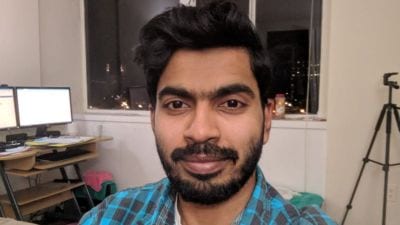Party with a South
In spite of not allocating a single ticket to a minority candidate in the just concluded Karnataka assembly polls...

In spite of not allocating a single ticket to a minority candidate in the just concluded Karnataka assembly polls, the BJP’s chief minister designate B.S. Yeddyurappa made a strange promise this Sunday. Soon after his party’s victory run in the 2008 assembly polls became irrefutable, Yeddyurappa announced that he would be swearing in a minister from a minority group into his ministry.
The move was intended to assuage fears that the BJP will fail to carry along the minorities as it takes its first shot at ruling a southern state on the strength of its own numbers and especially after making only a passing mention of minority welfare in its manifesto.
While the party has had a political presence in Karnataka since it emerged out of the erstwhile Jana Sangh in 1980, worries regarding the party’s ‘communal’ agenda emerged in the post-Babri demolition era when a clutch of communally sensitive issues began taking centrestage in the BJP’s attempts to gain power in Karnataka.
Chief among them has been the issue of control of the Datta Peetha shrine in the Bababudangiri hills in Chikmagalur district that is currently shared by Hindus and Muslims — with religious ceremonies being conducted under a high court order. In the past, BJP leaders like H.N. Ananth Kumar have called it the ‘Ayodhya of the south’ but in recent times with the BJP inching closer to power, the posturing on the issue has been less strident. The issue of the Idgah Maidan in Hubli, a BJP stronghold, and another point of controversy, has been resolved to some extent through the intervention of the courts.
During its 20-month-tenure as a partner of the Janata Dal (Secular) between February 2006 and October 2007, when the BJP actually tasted power in Karnataka for the first time, the party steered clear of both these controversies.
In the past there have been questions over the BJP’s ability to mobilise grassroot support in Karnataka, presumably leading to the need for it to fan communal flames. This assessment has, however, begun to change in view of the mounting evidence of the party’s growing vote base.
In 1983 the party polled 7.93 per cent of the total votes in the state, falling to 3.88 per cent in 1985 and then rising marginally to 4.14 per cent in 1989. In the 1994 polls, the party made its biggest gains till then, touching a high of 17 per cent of votes. The 1999 and 2004 polls also saw constant improvement with the vote percentages touching 20.69 and 28.33 per cent respectively.
Now on the doorstep of claiming single majority in the 2008 polls, the party has registered 34 per cent of the votes polled.
Apart from the present generation of leaders like Ananth Kumar and Yeddyurappa — who have been around since the 1980s when the BJP emerged as a bit player in Karnataka politics — there are many leaders frequently credited with building the BJP in Karnataka in the early years.
Karnataka Kesari Jagannatha Rao Joshi, a great orator, is credited with traveling to every district in the state as a Bharatiya Jana Sangh worker in the early years, pointing out the inefficiencies of the Congress and inspiring the youth to join the Jana Sangh. Bhavurao Deshpande, a sangh pracharak, who worked with Jaganatha Rao, is also credited with laying the foundation for the party in the state.
Photos





- 01
- 02
- 03
- 04
- 05


























